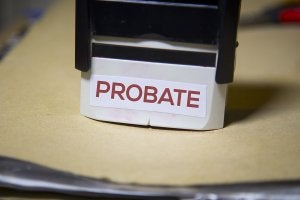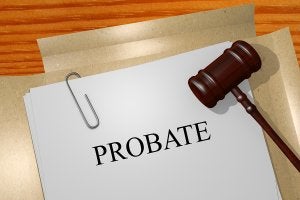-
Reasons to Contest a Will
If you are concerned that a loved one’s will does not accurately reflect his or her final wishes, you can choose to challenge the will in court. The first step is to contact an attorney who can walk you through how to contest a will in Houston and help you determine if you have legal grounds for your challenge. There are several different reasons you can opt to contest a will, from concerns about your loved one’s mental state to worries about forgeries. Here is a look at some of the most common reasons why people decide to contest a will.
Lack of Testamentary Capacity

Testamentary capacity refers to the legal and mental ability to create or change a will. If a person does not have a testamentary capacity, then the will in question is not valid. If you are concerned that your loved one did not have testamentary capacity, you must show that he or she did not understand the value of the property in question, who the beneficiaries are, and what having a will actually means. There are many reasons why someone may not have testamentary capacity when a will is made, including mental illness and dementia. People who make wills while under the influence of drugs and alcohol also lack testamentary capacity in the eyes of the courts.
Undue Influence
Any time a vulnerable person is under undue pressure to make certain provisions in or changes to a will, he or she is said to be under undue influence, and the will may not be valid. Typically, this involves someone manipulating a vulnerable person to receive a larger portion of the estate. The influence or pressure can come in the form of physical or emotional abuse or coercion.
Newer Will
The latest version of a will is always the one that is considered to be binding. If your loved one made changes to his or her will, but the executor is trying to enforce an older version, you can file a challenge to ensure that the newest one is being honored.
-
What to Expect from the Probate Process
The probate process is perhaps among the least understood aspects of estate planning. It can be complex and it may be a prolonged matter that takes months to complete. However, the steps of the process can actually be clearly defined. When you hire a probate lawyer serving The Woodlands, he or she will explain the probate process to you and answer any questions you may still have.
File the Petition

The first step in the probate process is to file a petition in probate court and provide notice to the heirs. If the individual died with a will, then the petition will seek to admit the will to probate and appoint the executor. If the individual died intestate, the petition will seek to appoint an administrator for the estate. All of the heirs and beneficiaries will be provided with notice and a notice about the probate hearing will usually be published in the local newspaper. This allows beneficiaries to voice objections in court.
Give Notice and Take Inventory
Once the executor is appointed by the court, he or she must notify all creditors of the estate. Creditors must make a claim within a certain period of time. Then, the executor will take an inventory of the estate property. The inventory includes real property, stocks, business interests, and other assets. The estate may need to hire an independent appraiser to assess the value of non-cash assets.
Pay Claims
The next step in the probate process is to pay claims. The executor will determine which claims against the estate are legitimate. Those will be paid and other expenses, such as funeral expenses, will be paid. It may be permitted to sell estate assets if this is necessary to pay these obligations.
Distribute Property
Once all legitimate claims have been satisfied and the waiting period to file claims has expired, the executor will ask the court for the authority to transfer the remaining assets. If the individual died with a will, the assets will be transferred in accordance with those specifications. If the individual died intestate, the assets will be transferred in accordance with the state intestate succession laws.
-
How Are Heirs Determined in Texas?
When a family member passes away, the surviving relatives must turn to a will or a probate court to determine how the deceased’s property should be distributed. To receive property, in the absence of a will, Texas probate law requires that you prove that you are a legitimate heir. To go through this process, it is often helpful to hire a probate lawyer in The Woodlands to assist with your case. Here is what you need to know about establishing yourself as an heir under Texas probate law.
Wills

A will is the most straightforward way to determine who is a legitimate heir. If there is a will in place, and no one contests it, then the will should state very clearly who the deceased intended to be an heir to his or her estate. If someone is not named as an heir in the will, then it is not possible to prove in court that he or she has a legitimate claim on being an heir without challenging the will. Challenging the will means proving that there is a legal reason it should not be considered binding.
Heirship Applications
If there is no will in place, then the estate will be decided in probate, and everyone who believes he or she should be considered an heir must file an application. Before heirship applications can be accepted, the potential heirs must establish that the deceased died without a complete will and that he or she had property in the state of Texas. There must also have been no administration of the estate, or, in cases where there was will, property must have been left out of the will. If these requirements are met, the applications for heirship can be submitted in a county in which the deceased owned property. The applications request information about the potential heirs and their relationships with the deceased. All potential heirs must sign the application, and if there are heirs that cannot be located, an ad must be placed in the paper to attempt to locate them. The court then uses this information to determine how to allocate the estate appropriately.
-
What to Know About a Probate Bond
When an individual goes to a probate lawyer to have a will drafted, the document will almost certainly waive the requirement of a probate bond . But in some cases, it is a requirement to obtain a probate bond in The Woodlands unless your probate lawyer successfully argues against it. When a probate bond is issued, its purpose is to offer protection to the heirs and creditors of the decedent specifically from the negligent or intentionally wrongful acts of the executor or administrator.
For example, an executor might decide to retain all of the funds in an estate for him- or herself instead of distributing them among the creditors and other heirs. The existence of a probate bond allows the creditors and heirs to recover the amounts they are entitled to despite this act of malfeasance. Although a probate bond seems to be desirable, in most situations it actually creates more problems than it solves. This is because obtaining a substantial probate bond can be costly and not everyone will be qualified to do so. The funds from the estate cannot be used to pay for the probate bond simply because these funds are inaccessible until the bond is already obtained.

RECENT POSTS
categories
- Uncategorized
- Estate Planning
- Probate
- Family Law
- Drafting a Will
- Divorce Lawyer
- Texas Family Law
- Divorce
- Real Estate
- Probate Court
- Child Custody
- Andrew J. Bolton
- Esq.
- Adoption
- Law Office of Andrew J. Bolton
- Wills
- Executor
- Infographic
- Guardianship
- Trusts
- Contested Divorce
- Child Support
- Attorney
- Living Wills
- Contested Will
- Prenuptial
- Probate Bond
- Heir Apparent
- Legacy Contact
- Living Trusts
- legal guardian
- Legal Disputes
- property rules
- Common Law
- Stocks
- Estate Tax
